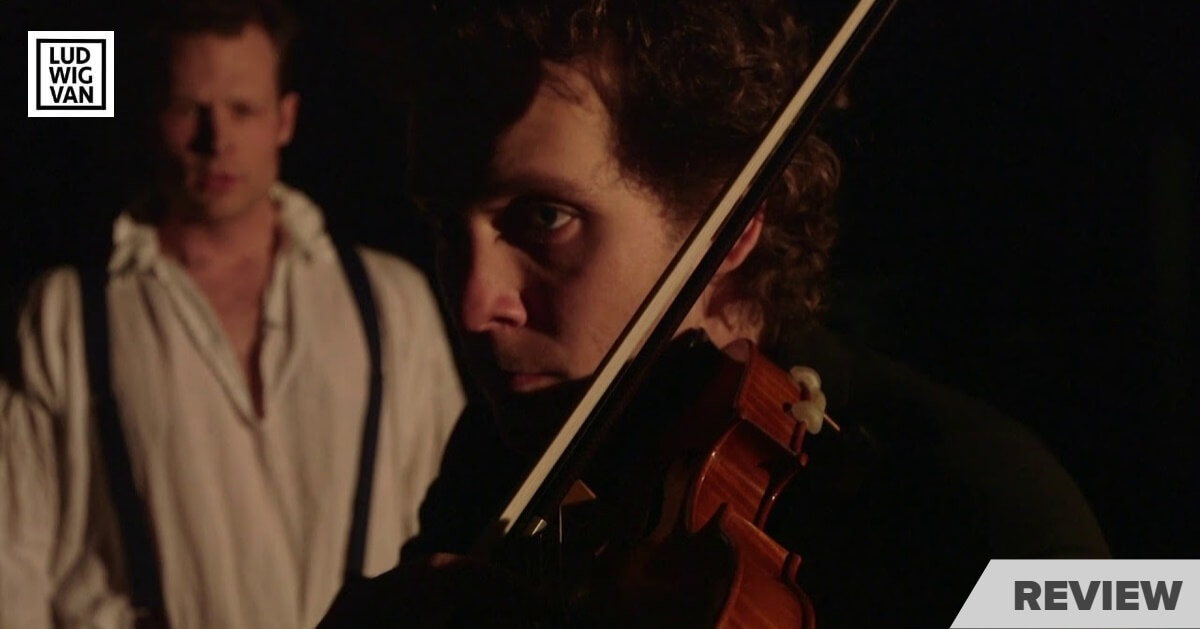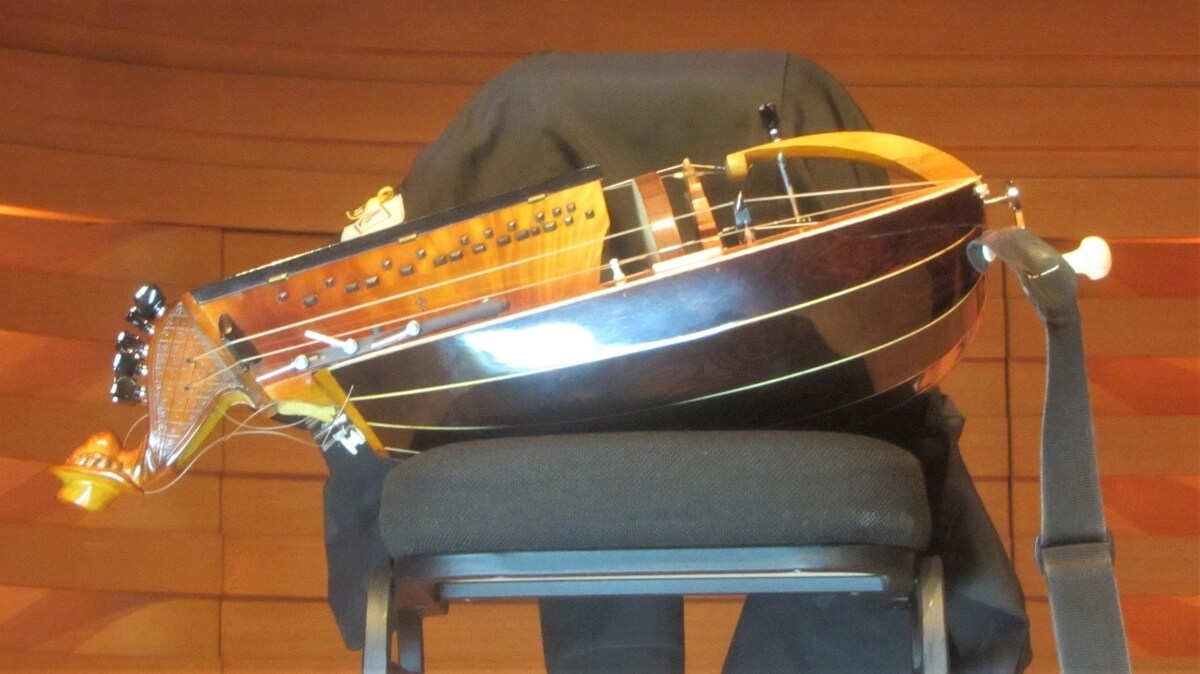
Schubert: Winterreise. Philippe Sly: Voice & Hurdy-Gurdy; Felix Delétoile: Clarinet and Arrangements; Samuel Carrier: Accordion and Arrangements; Karine Gordon: Trombone; Jonathan Millette: Violin; Roy Rallo: Stage Director; Doey Luethi: Production Design. 8 p.m., Koerner Hall, January 17, 2020.
Two years in the making, and with an acclaimed Analekta CD along the way, Canadian bass-baritone Philippe Sly and The Chimera Project brought their re-envisioned take on the Schubert classic to RCM’s 21C Festival at Koerner Hall.
A 193-year-old piece in a New Music Festival, you ask? That’s because it’s not just any old Winterreise, but one with a fresh perspective, albeit not so much in its narrative but in its musical presentation. Instead of the typical singer and pianist duo, this version involves four instruments: violin, clarinet, trombone, and accordion, the traditional ensemble for Klezmer.
Historically it grew out of the Ashkenazic Jewish folk music tradition of travelling musicians. I admit that when I first read about this project, I was rather skeptical. It’s quite audacious to tinker with an iconic work with nearly two centuries of performance practice. The cynic in me wanted to think, “it’s a self-indulgent gimmick by the creative team, just to be different.” But I was determined to go to the show with an open mind.
I am glad I did. The Klezmer musical flavour is used judiciously and not uniformly in all the 24 songs. I thought it was quite cleverly executed. The opening “Gute Nacht” had no singing, played by the Klezmer ensemble in a breakneck tempo. It certainly caught my attention! One song late in the cycle had piano accompaniment, and was sung in a straightforward manner. After having heard the in-depth discussions in the post-performance Q&A, I’m now convinced that this is a convincing if idiosyncratic musical take on Schubert’s masterpiece.
Devotees of this song cycle, myself included, are quite familiar with its narrative. I studied it in university half a century ago (!) and knew it reasonably well. Yet I haven’t retained all the text, and my German isn’t fluent enough to understand every word sung. It came as a big surprise that there were no translations other than song titles, and no printed text in the program. Given that Liederabend aren’t all that popular on this side of the pond, it’s asking a lot from the audience.

In the Q&A, it was mentioned that the de-emphasis of the text was a personal choice of the director, to allow greater focus on the music. But by doing that, it has the end result of a diminution of the narrative, which should remain a central element of the piece. A reprise of “Gute Nacht” as the 25th song, played and sung on a hurdy-gurdy by Sly, makes a powerful dramatic statement. Sly explained in the Q&A that the protagonist, unlucky in love, likely ends up as a sort of “musical wanderer” which gives the piece a real poignancy. Without the detailed text, some of the drama is lost.
Musically, it remained very memorable, the performance benefiting from five committed artists, the four instrumentalists and the singer. Philippe Sly sang with rich, powerful tone, that was yet capable of a full spectrum of tone colours. His dark-hued baritone sounded terrific accompanied by the clarinet in the lower reaches. The staging was quite physically demanding, and the agile Mr. Sly was completely up to the task. Kudos to him for playing the hurdy-gurdy for “Gute Nacht!”
Other than the first “Gute Nacht” without singing, there were other surprises. “Wasserflut” was turned into a bit of a duet with the addition of a rather disembodied female voice, that of trombonist Karine Gordon. “Das Wirthaus” was accompanied by the piano for some reason. It came as quite a striking contrast. I have some reservations about the staging, which as it stands is less meaningful to this viewer. I would like it to resonate more with the text.
While I would not suggest this Winterreise to be the first exposure for anyone new to it, it does add an interesting musical flavour previously absent in the plain vanilla piano accompaniment. If you missed the show, you can still catch Philippe Sly and The Chimera Project in three more appearances, as they are currently on tour: in Ottawa (Jan 20), Trois-Rivieres (Jan 23), and Saguenay-Lac St. Jean (Jan. 26). Details here. A preview of the work with various clips can be found on the bass-baritone’s YouTube channel.
#LUDWIGVAN
Want more updates on classical music and opera news and reviews? Follow us on Facebook, Instagram or Twitter for all the latest.
- SCRUTINY | Opera Atelier’s All Is Love Makes Triumphal Return - April 15, 2024
- SCRUTINY | From The Heart: Ema Nikolovska And Charles Richard-Hamelin Offer Unique Program At Koerner Hall - March 26, 2024
- SCRUTINY | The Glenn Gould School Spring Opera Presents A Superb Dialogues Des Carmélites - March 22, 2024



